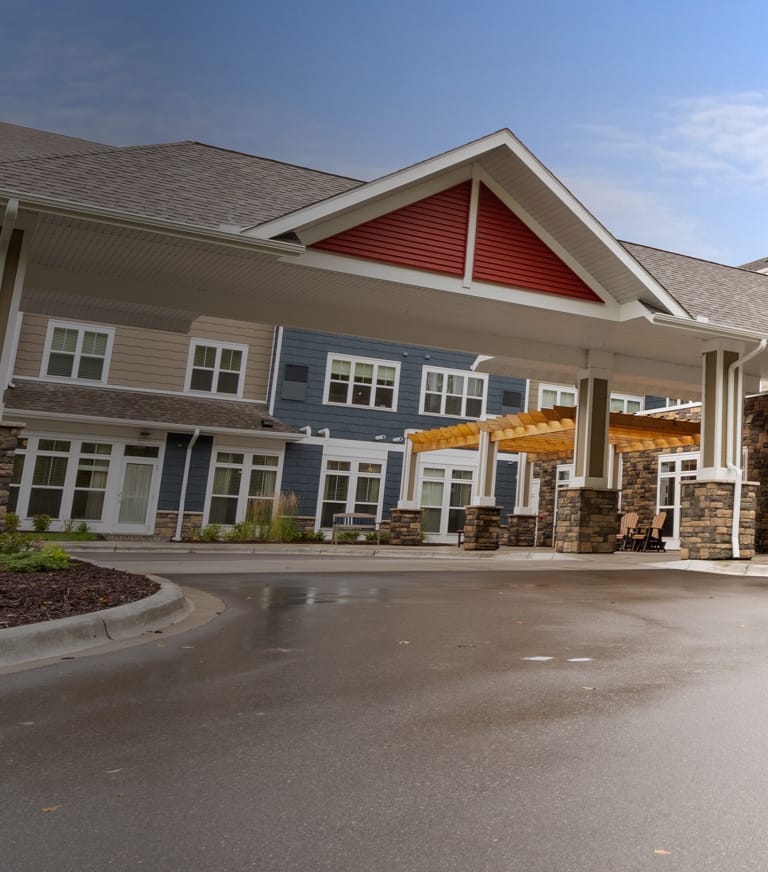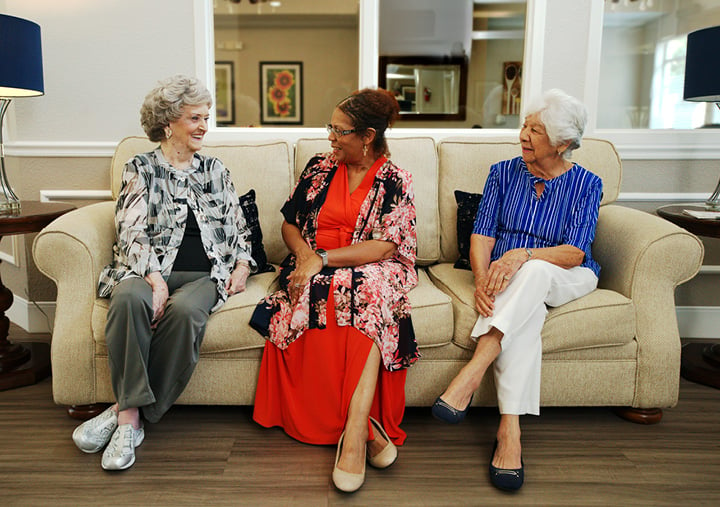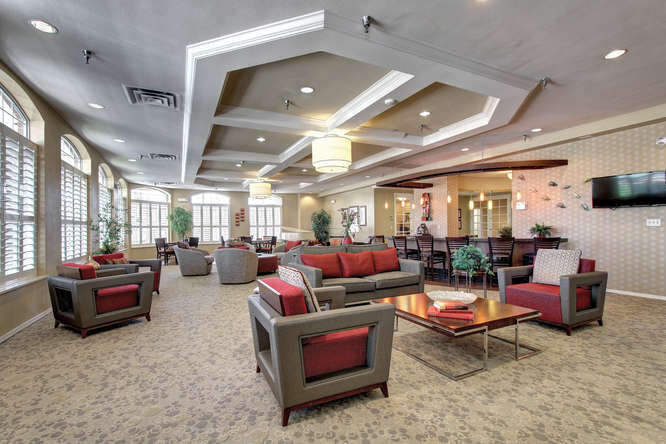Producing a Safe and Encouraging Atmosphere: Memory Treatment Methods for Elderly Living
Creating a Safe and Supportive Environment: Memory Care Methods for Senior Living is a thorough overview that offers valuable insights and useful techniques for boosting the top quality of life for people with memory impairment. The publication explores various aspects of memory treatment, including understanding memory impairment, designing a dementia-friendly environment, executing security steps, promoting interaction and socialization, and providing specialized treatment and assistance.
Recognizing Memory Problems

The reasons for memory impairment can be diverse. In many cases, it might be an outcome of all-natural aging procedures, where the mind's capacity to procedure and shop details gradually decreases. Various other reasons include neurodegenerative diseases such as Alzheimer's and mental deterioration, distressing mind injuries, strokes, and specific medical conditions or medicines.
Recognizing memory impairment is essential for establishing effective techniques to support individuals with this condition. It is necessary to recognize that memory impairment does not entirely affect memory itself but also influences various other cognitive features such as interest, analytic, and decision-making. Memory disability can have emotional and emotional repercussions, leading to feelings of complication, seclusion, and disappointment.
In order to offer ideal care and assistance for individuals with memory impairment, it is important to produce a encouraging and safe atmosphere that advertises independence, involves cognitive abilities, and lessens stress and anxiety and stress and anxiety. By recognizing the nature and sources of memory disability, caretakers, health care specialists, and household members can establish customized strategies to boost memory function, enhance lifestyle, and maintain a sense of dignity and freedom for those influenced.
Designing a Dementia-Friendly Atmosphere
Designing a dementia-friendly environment involves applying details alterations and adjustments to guarantee the security, comfort, and well-being of people with memory problems. Basic adjustments, such as clear signage and color-coded pathways, can help residents browse their environments separately and reduce the risk of obtaining shed.
One more essential aspect of a dementia-friendly setting is integrating memory aids and signs. Aesthetic motivates, such as memory boxes or acquainted objects, can trigger favorable memories and help people get in touch with their past. Presenting photos or personal tokens can likewise act as discussion starters and urge social communication among locals.

Implementing Security Measures
To ensure the wellness of residents with memory disability, elderly living communities need to focus on the implementation of reliable security actions. Memory care systems need to be equipped with different safety and security features to minimize the risk of accidents and offer a secure atmosphere for residents. One essential security step is the installment of handrails and get hold of bars in corridors, washrooms, and various other locations prone to falls. These assistive gadgets can aid residents maintain their equilibrium and decrease the probability of injuries. In addition, non-slip floor covering needs to be used throughout the facility to avoid slides and drops.
An additional crucial safety measure is the implementation of a protected entry system. This can include attributes such as keyless access, security electronic cameras, and alarm systems to stop unapproved accessibility and make sure that citizens do not stray (sanctuary senior). Doors and window locks need to likewise be in place to avoid citizens from leaving the premises without guidance
Moreover, it is necessary to have a well-trained team that comprehend the one-of-a-kind demands of people with memory disability. Personnel ought to receive training in dementia treatment and be knowledgeable about the methods for taking care of emergencies and stopping accidents. Normal security drills and assessments must be conducted to determine potential dangers and address them promptly.
Encouraging Engagement and Socialization
Elderly living communities can boost locals' health and lifestyle by promoting engagement and socialization possibilities. Promoting interaction and socializing is vital in memory treatment techniques as it can aid improve cognitive function, psychological well-being, and overall joy for elders with memory problems.
One effective method to advertise engagement and socialization is with structured tasks. These tasks must be tailored to the citizens' passions and abilities, guaranteeing they are involving and pleasurable. Group tasks such as art courses, music treatment sessions, and team outings can offer chances for social interaction and create a sense of belonging within the neighborhood.
In enhancement to organized activities, it is very important to develop areas that urge socializing. Usual locations need to be welcoming and comfy, providing chances for homeowners to collect and involve in conversations. Outside areas, such as yards or yards, can likewise be created to advertise socialization and offer a soothing atmosphere for citizens to get in touch with nature and each various other.

Giving Specialized Treatment and Assistance
One vital facet of memory treatment approaches for senior living is the provision of specialized care and support that deals with the distinct YOURURL.com demands of individuals with memory impairments. Memory impairments, such as those connected with Alzheimer's illness or dementia, can have a considerable effect on a person's capability to execute day-to-day tasks and preserve their general wellness. It is essential for senior living facilities to have personnel members who are educated in giving specialized treatment for citizens with memory disabilities.
Specialized care and assistance for people with memory problems concentrate on producing a risk-free and supportive atmosphere that promotes their self-respect, freedom, and top quality of life. This includes implementing organized regimens, creating memory-friendly rooms, and making use of memory aids, such as aesthetic hints or reminders. In addition, personnel should have a deep understanding of the person's personal background, preferences, and capabilities to give person-centered care.
Moreover, specialized care additionally includes providing emotional and social support to individuals with memory disabilities. This includes involving them in meaningful tasks, promoting social communications, and offering healing programs customized to their cognitive abilities. By providing specialized treatment and assistance, senior living centers can improve the overall well-being and quality of life for citizens with memory impairments, enabling them to live with self-respect and function.
Final Thought
To conclude, developing a encouraging and risk-free setting for elders with memory impairment needs recognizing their demands, creating a dementia-friendly room, applying security procedures, advertising engagement and socialization, and providing specialized treatment and assistance. By utilizing these techniques, senior living areas can boost the quality of life for individuals with memory disabilities and guarantee their wellness.
Developing a Safe and Helpful Environment: Memory Treatment Strategies for Elderly Living is an extensive overview that supplies see page useful insights and useful methods for improving the quality of life for people with memory impairment. The book explores various aspects of memory care, including recognizing memory disability, designing a dementia-friendly atmosphere, applying safety procedures, advertising interaction and socialization, and supplying specialized care and support. Memory problems can manifest in various types, Extra resources ranging from light forgetfulness to serious memory loss that significantly affects everyday performance.
It is essential to identify that memory problems does not entirely influence memory itself however likewise impacts various other cognitive features such as attention, analytical, and decision-making.One important element of memory care approaches for elderly living is the provision of specialized care and support that attends to the one-of-a-kind requirements of individuals with memory disabilities.